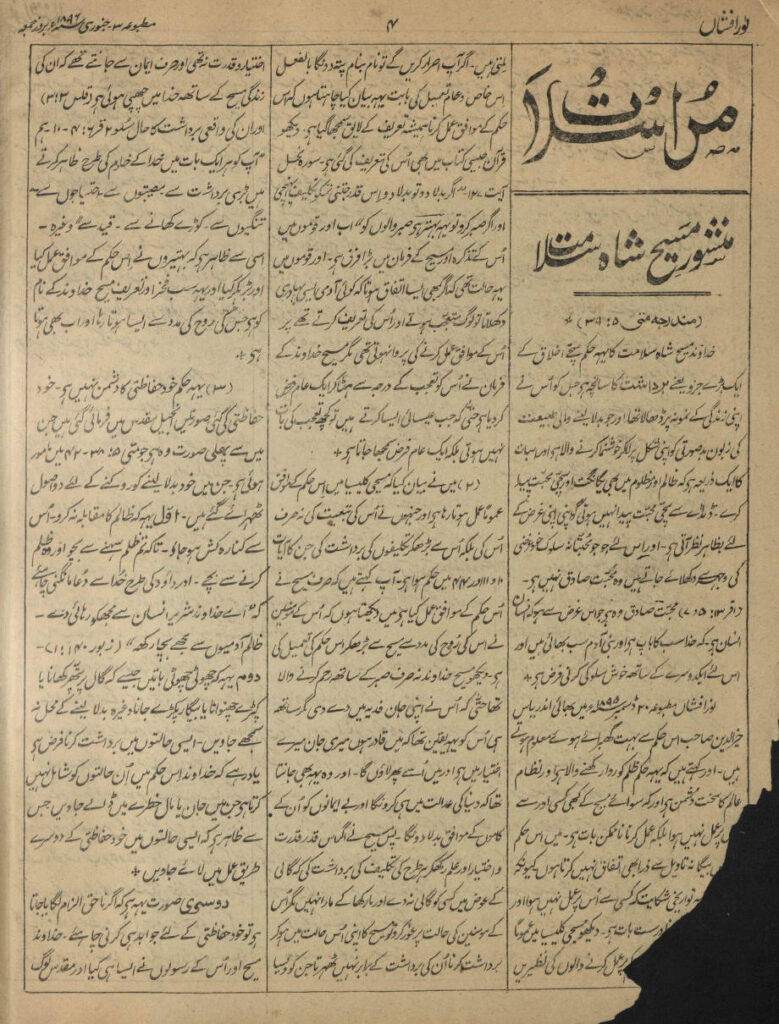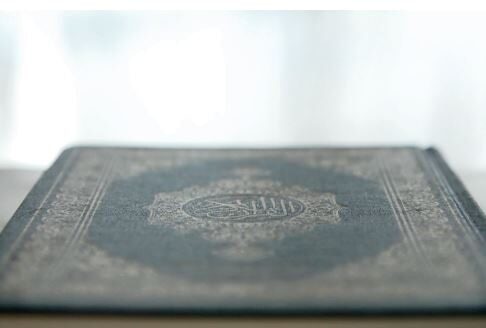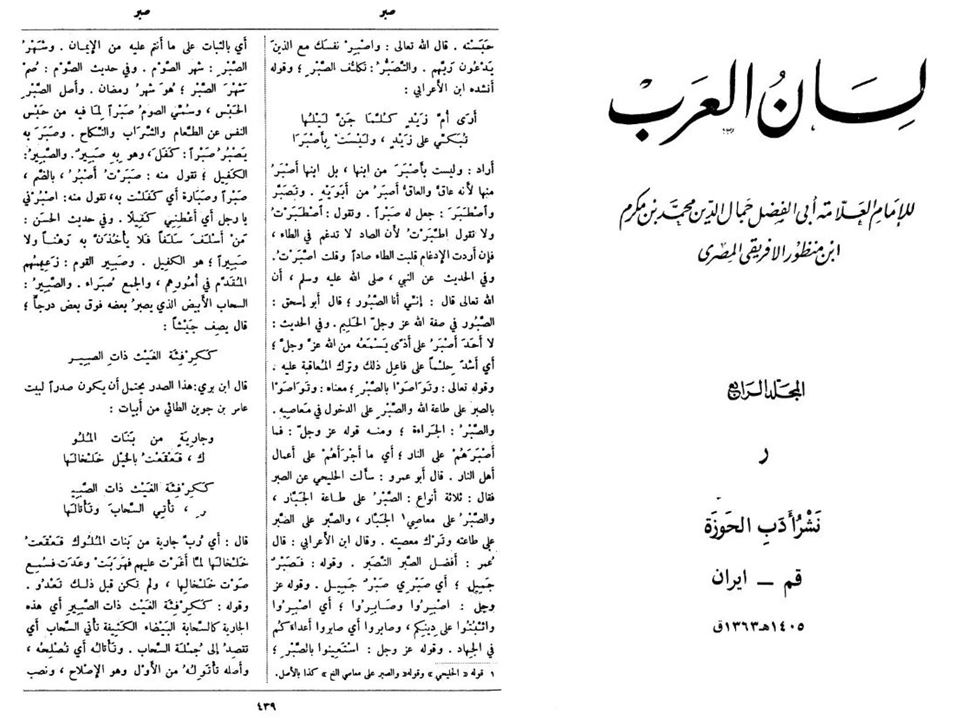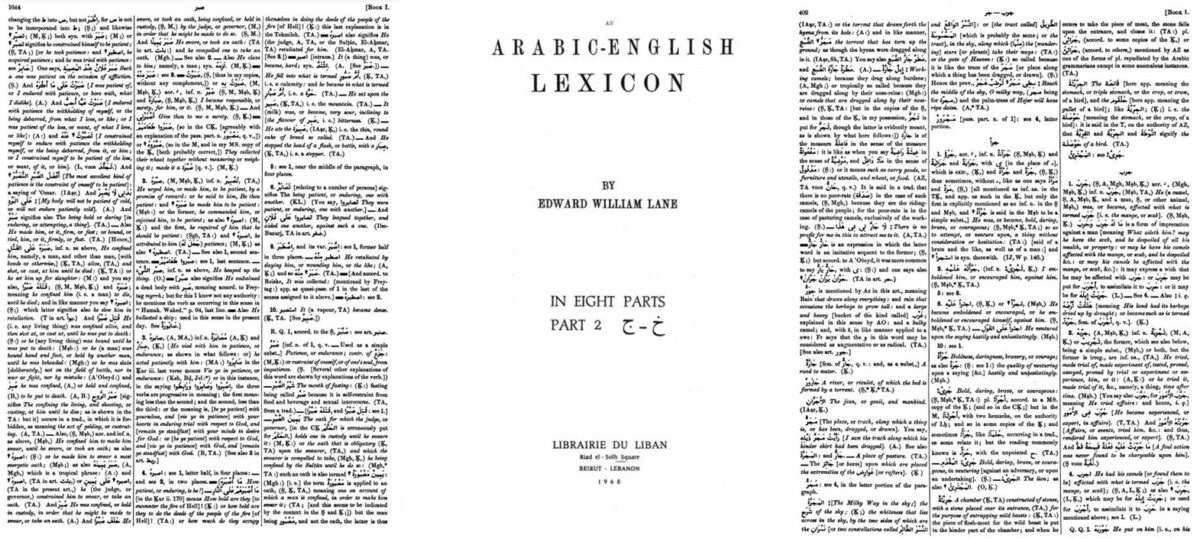Ata-ul-Haye Nasir, Al Hakam
On 20 December 1895, the Christian newspaper, Nur-i-Afshan of Ludhiana, published a comment from Indar Yas Khairuddin – compounder at the Mission Hospital in Dera Ghazi Khan – in which he requested some elaboration of the following verse of the Gospel:
“But I tell you, do not resist an evil person. If anyone slaps you on the right cheek, turn to them the other cheek also.” (Matthew 5:39)
Question of Indar Yas Khairuddin

He asked, “Has anyone in this world acted upon this blessed verse to the letter? If one ponders over all the history books of the world from start to end, we find no individual who has practised it. There have been many prominent sacred personalities, but no one has practised it except the Lord Jesus. […] Has there been anyone from amongst the Christians of this world? No one. In fact, it is an impossible thing. If no one acts upon this blessed verse, then why is such a complex matter put before us which could not be fulfilled by any human being? On the other hand, we see that one who remains silent [upon being oppressed and] does not wish to indulge in any dispute, the people who are called the oppressors carry out greater oppressions against them. They get the opportunity by witnessing that this person is weak and cannot do anything, and due to their tricks, they are able to run away despite being on falsehood and carrying out oppressions. They continue to dishonour them with the help of their cleverness.” (Nur-i-Afshan, 20 December 1895, pp. 5-6)
Response from Rev. GL Thakur Das

On 3 January 1896, Nur-i-Afshan published a response from Rev. GL Thakur Das, titled “Manshur-e-Masih Shah Salamat”.
GL Thakur Das was one of the three Christian missionaries who were settled upon to assist Deputy Abdullah Athim during the debate between the Promised Messiahas and Abdullah Athim, published as Jang-e-Muqaddas. (The Holy War [Jang-e-Muqaddas], p. 3)
It was a practice of GL Thakur Das to write articles wherein he would attempt to attack the beautiful teachings of Islam, the majesty of the Holy Quran and the blessed character of the Holy Prophetsa. Moreover, the tone of these articles was very harsh and abusive towards Hazrat Ahmadas as well.
In his above-stated article, he wrote:
“In the 20 December 1895 issue of Nur-i-Afshan, Brother Indar Yas Khairuddin Sahib seems to be very concerned about this commandment and states that this commandment encourages the continuation of oppression and is antagonist of the system of the universe, and that no one except Jesus could ever act upon this, but rather, it is an impossible thing to practice it. I do not agree at all with this insignificant inference.” (Nur-i-Afshan, 3 January 1896, p. 4)
The author then goes on to refute this statement from Khairuddin and says:
“It has always been deemed commendable to act upon this commandment. Look, it has been commended in a book like Quran as well.” (Ibid.)
He quoted verse 127 of Surah an-Nahl, which states:
وَاِنۡ عَاقَبۡتُمۡ فَعَاقِبُوۡا بِمِثۡلِ مَا عُوۡقِبۡتُمۡ بِہٖ ؕ وَلَئِنۡ صَبَرۡتُمۡ لَہُوَ خَیۡرٌ لِّلصّٰبِرِیۡنَ
(Surah an-Nahl, Ch. 16: V. 127)
Promised Messiah’sas ishtihar in response
In response to the article by Rev. GL Thakur Das, the Promised Messiahas issued an ishtihar titled “Do Isaa‘ion mein Muhakamah” – An arbitration between two Christians – and wrote:
“It is stated in Chapter 5 of the Gospel of Matthew, ‘You have heard that it was said, “Eye for eye, and tooth for tooth.” But I tell you, do not resist an evil person. If anyone slaps you on the right cheek, turn to them the other cheek also. [Matthew 5:38-39].’ A Christian individual named Khairuddin has objected to it hesitantly that such commandments are against the natural law of self-protection which is seen in all animals, even in birds and insects as well, and it cannot be proved that any person except Jesus[as] himself has ever followed these commandments. Therefore, this question of his has been published in Nur-i-Afshan dated 20 December 1895. In fact, this question by Khairuddin was a very good and perfect one and a criterion for a less knowledgeable person.
“However, unfortunately, in Nur-i-Afshan’s issue of 3 January 1896, Rev. Thakur Das Sahib has given such a weak and absurd answer to this appreciable and valuable question that will surely make a researcher laugh. Hence, I deemed it appropriate to reveal some of the truth of the question and the answer as an arbitration, and to benefit those who are desirous and thirsty for the true facts.
Torah and Gospel
“It should be clear that Rev. Thakur Das Sahib emphasises that in the Gospel, the meaning of non-resistance in the situation of the loss of life or finance is that the government should take revenge from the oppressor, not the person himself. In other words, if a wrongdoer seriously harms someone’s life or snatches their property, in such a situation, the Gospel teaches that one ought to litigate through the ruler. Now, one ought to carefully ponder over that the original statement of the Gospel of Matthew which has been interpreted, states that ‘You have heard that it was said, “Eye for eye, and tooth for tooth.” But I tell you, do not resist an evil person.’ Here, the point to ponder is what the meaning of non-resistance is? Is it merely that if a wrongdoer damages one’s eye or pulls out a tooth, they should be punished through the authorities, one ought not to damage their eyes or pull out their teeth? If this is the meaning, then what will be the superiority [of Gospel] over the Torah? This is because the Torah also gives the same guidance that the wrongdoers should be punished through the judges. In Chapter 21 of Exodus, God addresses Mosesas:
“‘[But if there is serious injury,] you are to take life for life, eye for eye, tooth for tooth. [Exodus 21:23-24]’
“And the Torah is telling that all these punishments should be carried out according to the suggestion of the judges. However, Rev. Thakur Das Sahib says that the superiority of the teaching of the Gospel over the teaching of the Torah is that an oppressed person ought to take revenge through the authorities. That is, the Jews had the right to punish the oppressor themselves without the intervention of the authorities, but the Gospel did not declare anyone except judges and rulers to be authorised to punish. As if it is the Gospel that has proposed the positions of judges, and there is no mention of it in the Torah. But it is obvious that such an idea is a clear contradiction to the facts and the priest has not presented any verse of the Torah that implies that the Torah gives everyone the authority to punish. Rather, it is known to every reader of the Torah that all the punishments and limitations of the Torah were implemented through the judges, and there was provision in the Torah for the punishment of crimes that every criminal should be punished by the judges.” (Majmu‘ah-e-Ishtiharat [2019], Vol. 2, pp. 118-119)
An insightful commentary of a Quranic verse

The Promised Messiahas further elaborated on this point and after giving a strong refutation to the arguments of Rev. GL Thakur Das, Huzooras stated:
“Further, when Rev. Thakur Das Sahib realised that the one-sided teaching of the Gospel is in fact strongly opposed by reason and the law of nature, then just like a drowning person, he reached out to the Holy Quran to find some support. Therefore, he states that even in a book like the Quran, this commandment of the Gospel has been praised, and then presented an incorrect meaning of a verse that ‘if you take revenge then do so to the extent to which you have been wronged; but if you show patience, then, it is best for those who are patient. [Surah an-Nahl, Ch. 16: V. 127]’
“From this verse, he desires to draw a conclusion that it is as if this teaching aligns with the one of the Gospel. However, this is partly his mistake and partly mischief. The mistake is because these people are simply ignorant and unaware of Arabic knowledge. Therefore, they have no ability to understand the true meaning of the Quranic words and the mischief in the sense that the verse categorically says that it does not emphasise only one aspect of toleration and forgiveness, like the Gospel, but rather, retaliation has been presented as a commandment. Moreover, the word is صبر, instead of عفو. […] But still, Rev. Thakur Das Sahib has deliberately turned his eyes away and wanted to equate the perfect teaching of the Holy Quran with the imperfect and lacking teaching of the Gospel.” (Ibid., p. 123)
In the footnote, Huzooras wrote:
“The statement that ‘in a book like Quran as well’ is a derogatory statement that has been used by the Padre Sahib about the Holy and Sacred Book of God Almighty. I am very astonished as to why this dead-worshipping nation holds so much grudge against the Pure Word of Allah, the Sublime.” (Ibid., footnote)
Huzooras continued:
“The readers must note that the verse of the Holy Quran which has been incorrectly interpreted by Thakur Das Sahib, is as follows:
وَاِنۡ عَاقَبۡتُمۡ فَعَاقِبُوۡا بِمِثۡلِ مَا عُوۡقِبۡتُمۡ بِہٖ ؕ وَلَئِنۡ صَبَرۡتُمۡ لَہُوَ خَیۡرٌ لِّلصّٰبِرِیۡنَ
“That is, ‘And if you punish [the oppressors], in return for their oppressions, then do so to the extent to which you have been wronged; but if you show patience, then, surely, that is best for those who show haste in punishing, cross all limits and misbehave – meaning those who are unable to identify the appropriateness and suitability. The word صبر in لِّلصّٰبِرِیۡنَ means ‘to punish without any investigation and on an inappropriate moment’, for this reason, God Almighty did not state لَھُوَ خَیْرٌ لَّکُمْ [Surely it is best for you], but rather, stated لَہُوَ خَیۡرٌ لِّلصّٰبِرِیۡنَ, to indicate that the meaning of صبر at this place is not the same as the one used earlier [in صَبَرۡتُمۡ]. And if the meaning were the same, then instead of لَکُمْ, the word لِّلصّٰبِرِیۡنَ would have seemed meaningless and against eloquence. In the Arabic lexicon, while صبر means to control something, it also means to act with extreme haste, misbehave and act without any investigation.” (Majmu‘ah-e-Ishtiharat [2019], Vol. 2, p. 124)

Among many other Arabic dictionaries, this meaning of the word صبر is mentioned in Lisan-ul-Arab as well. It states that it means الجراءۃ as well. (Lisan-ul-Arab, Vol. 4, Qom, Iran, p. 439)
Hence, when we look at the meanings of الجراءۃ and جرأۃ in Lane’s Arabic-English Lexicon, it states that it means to be bold, daring, brave, or courageous; so as to attempt or venture upon a thing without consideration or hesitation. Lane has also stated, “And صَبْرٌ signifies also The being bold or daring [in enduring, or attempting, a thing].” (An Arabic-English Lexicon, Edward William Lane, 1863, pp. 402 and 1644)

Huzooras continued:
“Now, the readers ought to ponder that this verse only means that every believer has been made incumbent to retaliate to the extent to which they have been wronged, but if they show patience, meaning they refrain from hastily punishing [the oppressor], then in this case, patience is better for those who are accustomed to show hurriedness and hast and commit unsuitable acts. Meaning that those who do not punish [the oppressor] at an appropriate moment, instead, retaliate even against such people who, if shown benevolence [ihsan], would have reformed, or they are so quick in punishing that they inflict hardship upon an innocent person, instead of carrying out a thorough investigation and interrogation. Such people are required to show patience, that is, to refrain from hastily moving towards punishment. Firstly, one ought to carry out enough investigation and research and ponder thoroughly as to whether or not it is a suitable moment for punishment. Then, if it is a suitable moment, then they ought to do so, otherwise, stay behind. Moreover, this subject is not stated in this verse alone, but rather, it has been stated in various other verses of the Holy Quran as well. Hence, Allah the Sublime states in one instance:
وَجَزٰٓؤُا سَیِّئَۃٍ سَیِّئَۃٌ مِّثۡلُہَا ۚ فَمَنۡ عَفَا وَاَصۡلَحَ فَاَجۡرُہٗ عَلَی اللّٰہِ
“‘And the recompense of an injury is an injury the like thereof; but whoso forgives and the forgiveness of such nature that aims at bringing about an improvement, his reward is with God.’ (Surah ash-Shura, Ch.42: V.41)
“In other words, the forgiveness ought not to be at an unsuitable and inappropriate moment which might produce a bad result and initiate a disorder, but rather, the forgiveness should be at an instance which may result in a reform. This indicates that the natures of all human beings are not the same and the abilities and habits of the sinners are not of the same nature, but rather, some of them deserve punishment and their reformation is impossible without punishment, while the others benefit from the forgiveness and toleration, and upon being punished, they continue their wrongdoings with even more fervour. Thus, this teaching of assessing the situation and time is found in various places in the Holy Quran. If I elaborate on those [teachings], it would make a massive magazine.
Mount Paran
“It is important to remember that, as it has been stated in the Torah that ‘The Lord came from Sinai and dawned over them from Seir; he shone forth from Mount Paran. [Deuteronomy 33:2]’, therefore, the true shine of each teaching has emerged from Islam. It is Quran that has made [mankind] perfectly acquainted with the Act and the Word of God. The Torah had emphasised punishments, and since the Gospel came when the habits of revenge, grudge and prejudice had exceeded all bounds amongst the Jews, for this reason, it taught about forgiveness and tolerance. However, this teaching in itself was not the perfect one, but rather, antagonistic to the Divine System. Hence, a seeker of the perfect teaching would have huge doubts about the teaching of the Gospel, and possibly declare such a teacher to be less knowledgeable and simple-natured.” (Majmu‘ah-e-Ishtiharat [2019], Vol. 2, pp. 124-125)
In regards to Paran, Huzooras stated:
“فاران is an Arabic word that means ‘two fugitives’ and its verbal noun is فرار. Since Hazrat Ismaelas and his righteous and truthful mother Hajrara migrated to the land of Mecca Muazzimah in light of the divine revelation due to the exceeding wrongdoings of Sarah, for this reason, this land was called فاران, meaning two fugitives.” (Ibid., p. 125 [footnote])
Imperfect teaching of the Gospel
The Promised Messiahas further said:
“The Messiah[as] himself acknowledges the imperfectness and flaws of his teaching, and tells his companions:
“‘All this I have spoken while still with you. But the Advocate, the Holy Spirit, whom the Father will send in my name, will teach you all things.’ (John, 14:25-26)
“This indicates the fact that ‘My teaching is flawed and imperfect and the upcoming prophet will bring a perfect teaching.’ […] If the Christians had any justice in them, the Messiah’s acknowledgement of his own teaching being flawed and the hope for the upcoming prophet was a sufficient method for them to identify our Master, Khatamul Anbiyaa, may peace and blessings of Allah be upon him, particularly in a situation when the Gospel’s flawed teaching required a perfect Book.” (Majmu‘ah-e-Ishtiharat [2019], Vol. 2, p. 127)
Rev. Thakur Das’ response and Khairuddin’s clarification

On 21 and 28 February, and 6 March 1896, the Nur-i-Afshan published articles by Rev. GL Thakur Das, wherein he attempted to refute the arguments presented by the Promised Messiahas in his above-stated ishtihar. However, it is our firm belief that the arguments presented by Hazrat Ahmadas, in favour of Islam’s magnificence, are undoubtedly irrefutable.
Due to his objections over the Biblical verse, Khairuddin was being labelled as an admirer of Hazrat Ahmad’sas teachings and had to face opposition from his Christian brethren, so much so that he had to announce in Nur-i-Afshan, in an article dated 17 April 1896, that it was his mistake to doubt the Gospel’s teaching. He expressed:
“I am aware that some of the Christian brethren presume that I adore the teaching of Mirza Sahib. I am very astonished upon hearing this. Now, I put this matter to God Almighty that the Lord Father will Himself decide about this contention, since he knows the inner feelings and hidden thoughts.” (Nur-i-Afshan, 17 April 1896, p. 9)
Conclusion
This whole episode is another testament to the fact that the Promised Messiahas was always at the forefront of defending Islam and its magnificent teachings. He would always highlight the fact that it is only Islam that presents a teaching which is compatible for all eras and the Holy Quran’s perfect teachings are the only solution to all problems of this world, particularly the establishment of a peaceful and just society.

